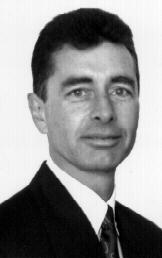|
Eugene Moore
Sexual Orientation and Transgender Issues in Law Enforcement
For several years now, the NZ Police have been quietly initiating programs to address the issues of sexuality and gender
identity both within the force and within New Zealand society. These initiatives do not simply focus on 'gay' issues, but
upon a wide variety of sexuality and gender-identity issues that can have significant impacts upon the entire community.
After a presentation by Full Spectrum Ltd. (which trains on sexuality issues in the NZDF, NZ Customs and the Australian
Defence Force) to the Police Executive Committee at the Office of the Commissioner in the Winter of 2000, it was decided that
all district managers should receive the training. Subsequently, the district managers who have received this training have
decided that the training should continue through the ranks to include officers at every level, as well as all new recruits
during their training at the Royal New Zealand Police College.
While there has been initial scepticism by many police personnel prior to their attendance at the training, there are
typically significant changes in perspective once personnel actually attend the courses. Rather than focussing only on narrow
'gay' issues, the training focuses on how homophobia contributes to a plethora of problems for individuals, families, organisations
and communities, and how many of these problems can become police issues, requiring insight and professional understanding
on the part of those who must deal with them.
The training provides the police with specialist knowledge and tools to effectively address those issues: From schoolyard
bullying that uses endemic homophobic labelling against (mainly) heterosexual boys (and which helps explain incidents such
as the Taradale broomstick incident), to hate crimes against people who are perceived to be gay, lesbian, bisexual or transgender
(GLBT) often simply because they are 'different', to being aware of how to identify the 'markers'; for gay homicides which
are on the increase around the world, to understanding how homophobia contributes to suicide in substantial numbers of cases,
to appreciating how societal homophobia can push homosexual people into heterosexual relationships which can in turn create
unhappiness and dysfunction resulting in domestic incidents, to understanding the dynamics of adult same-sex sexual assault
and how to respond, to learning how to handle cases of public sexual activities between men at 'beats'; to seeing the connection
between homophobia and some forms of parental abuse against children who are perceived to be GLBT, to realising how homosexual
activity in prisons can contribute to recidivism by (in particular) males who leave prison and feel the need to reassert their
masculine/heterosexual credentials by engaging in hypermasculine and/or hyperheterosexual behaviour that can include criminal
offending, to seeing the connection between some men's efforts to assert their heterosexual credentials by sexual harassment
(including rape) against females - and the list goes on.
In short, the training helps the police to see the issues from a much broader perspective than they initially assume.
As one sceptical senior officer said to his colleagues after he attended the training, "You will learn so much, and you
will be amazed how much relevance this has to criminal behaviour"; After all, the best cops are those who can look outside
their own experiences and perspectives, and see how others may be perceiving and responding to the world around them. Successful
investigations and prosecutions require that police are able to see motives, drivers and factors that otherwise may remain
hidden - and sexuality/gender identity factors are more often than not utterly hidden from view.
|
